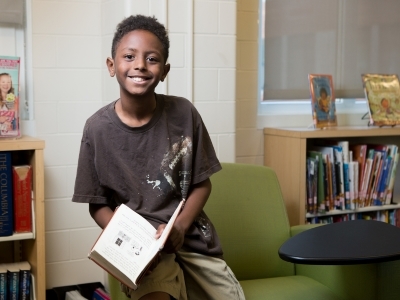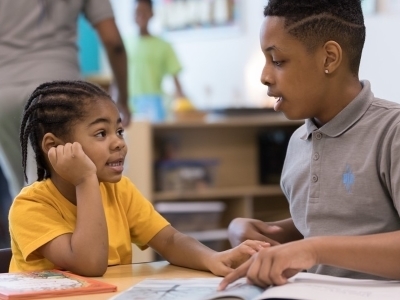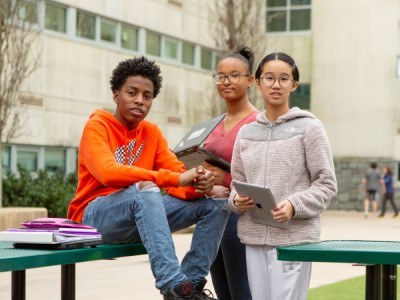Assessment for Deeper Learning: Reclaiming the Power of Assessment
Topics
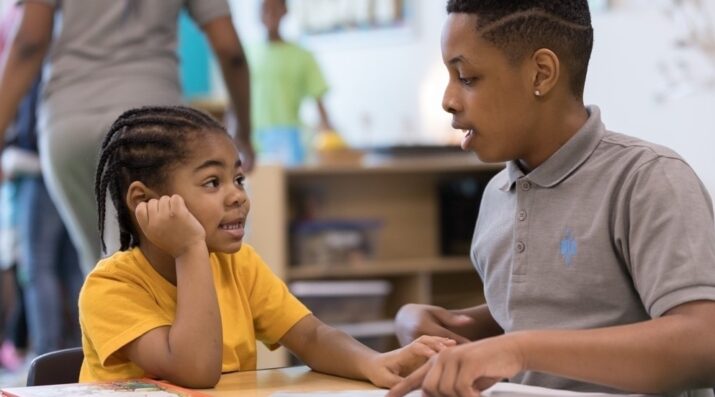
Educators are rethinking the purposes, forms, and nature of assessment. Beyond testing mastery of traditional content knowledge—an essential task, but not nearly sufficient—educators are designing assessment for learning as an integral part of the learning process.
We as educators need to answer these 3 essential questions so that everyone understands the vital role that assessment plays in learning and teaching.
In a climate where there continues to be a movement among parents and educators to opt out of standardized tests, ‘assessment’ has become a dirty word. However, assessment in itself isn’t to blame. The problem lies in the misuse of tests to hold educators and schools accountable while not leveraging results to help all students learn. The fault also resides in systems where data that comes back from assessments is both too broad to be actionable and arrives too late for teachers and students to do anything about it. And an overemphasis on evaluations that don’t measure all that we know students will need for their future further compounds the issue. Assessment itself is not to blame.
We as educators need to reclaim assessment. Specifically, we need to do a better job of answering the following three essential questions so that everyone understands the vital role that assessment plays in learning and teaching.
Why Do We Assess?
We need to communicate to students and families that we assess for two reasons. First, we still need to evaluate what students have learned and share these findings with learners, families, and other interested parties like colleges and future employers. The standardized tests that we give at the end of each school year serve a purpose—they are summative assessments of learning.
The second and more powerful reason that we assess is to gain information about how a student is performing in the middle of the learning process. If we design learning with the end in mind as Grant Wiggins and Jay McTighe suggested in their seminal work Understanding by Design, we will have a clear destination. However, we need a way to determine where we are in the process of getting there. Assessment for learning is all about providing students and teachers the information they need to best chart the course to that learning destination.
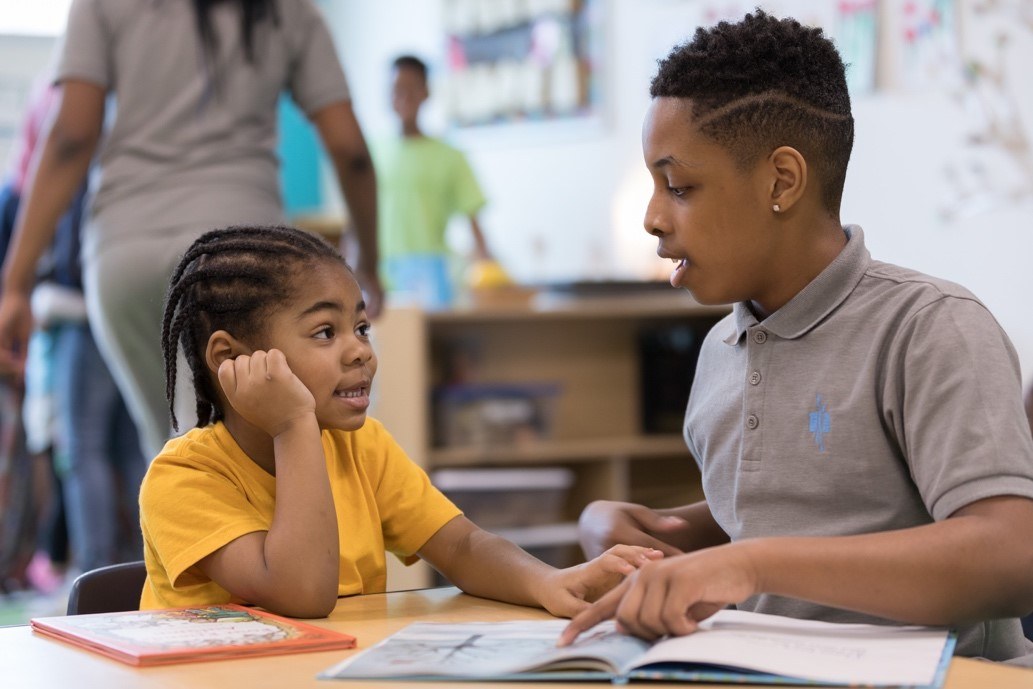
Assessment provides the information that we need to target skills necessary for reaching our goals (Storybox Photography 2018.)
What Do We Assess?
While there is a clear need for students to learn core content and skills, we know that for students to be successful today they need more than just the literacy and math skills that we test each year. They also need the skills associated with more in-depth learning.
The most troubling aspect of the use of assessment against a narrow definition of school success is that it widens the opportunity gap for our students. When the only thing that we evaluate in schools is basic literacy and math skills, the biggest losers are the most disadvantaged. Students of color, English language learners, special needs students, and students from low-income families are the most likely to experience rote learning environments. A testing regime that emphasizes performance on these limited standards too often results in schools that only teach to the test. However, we know that students who come from less privileged backgrounds need a broader set of learning outcomes than those that are regularly taught in schools.
At Two Rivers, we have defined these outcomes as critical thinking and problem-solving skills; collaboration and communication skills; and character. Each of these, along with the core content and skills that schools have traditionally taught matter for all of our students. We need to be assessing each outcome.
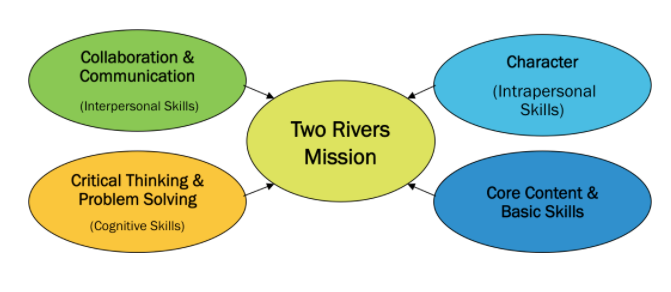
To be clear, we need to assess these primarily for student learning—not just to report on how they are doing. For example, if we want students to be great critical thinkers, we need to evaluate their ability and provide them with feedback rather than just a grade.
Assessment for Deeper Learning from Two Rivers Public Charter School
How Do We Assess?
How do we evaluate these learning outcomes? The answer lies in defining the constructs clearly with a progression of development, providing authentic opportunities to demonstrate the targeted skills, creating systems for collecting and analyzing student work based on the shared definitions, and utilizing the data to help students get better at the targeted skills.
At Two Rivers, our approach to deeper learning has involved the creation of rubrics that define three constructs of critical thinking and problem-solving: effective reasoning, problem-solving, and decision making. Utilizing these scoring guides, we have created short performance tasks for students that can be used to assess students’ ability to transfer their skills into new settings. The data that comes back from these performance assessments can be effectively leveraged to shine a light on thinking for students. They can understand systematic ways to think more deeply through problems and identify specific places in their thinking to focus on improvement.
Assessment is a powerful tool to help all of our students develop the skills and knowledge to achieve rich and varied options for their futures. We need to reclaim this tool from a system that has reduced assessment to a stick for measuring the lowest common denominator of educational outcomes. Let’s do it together.


